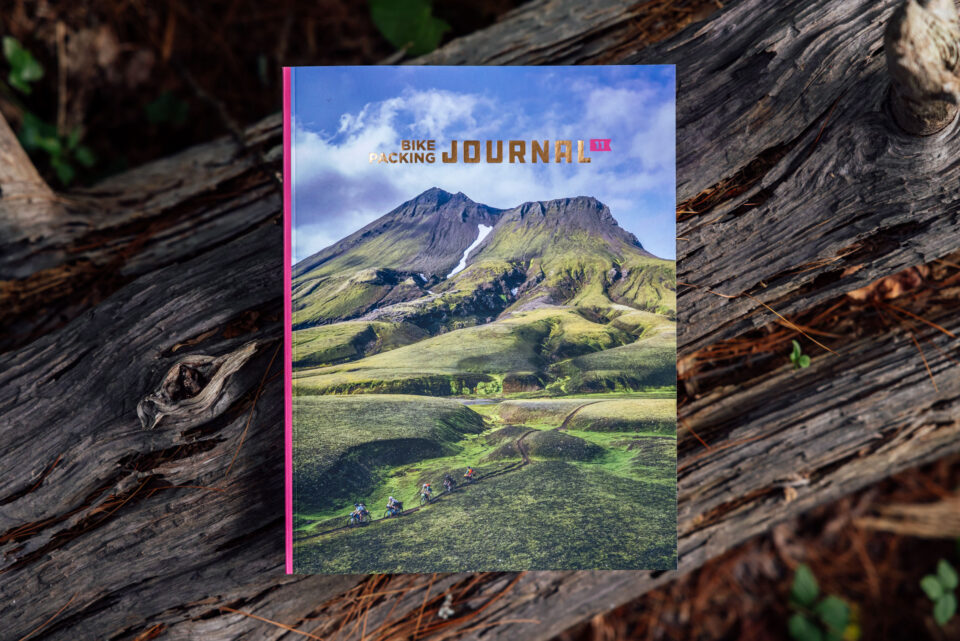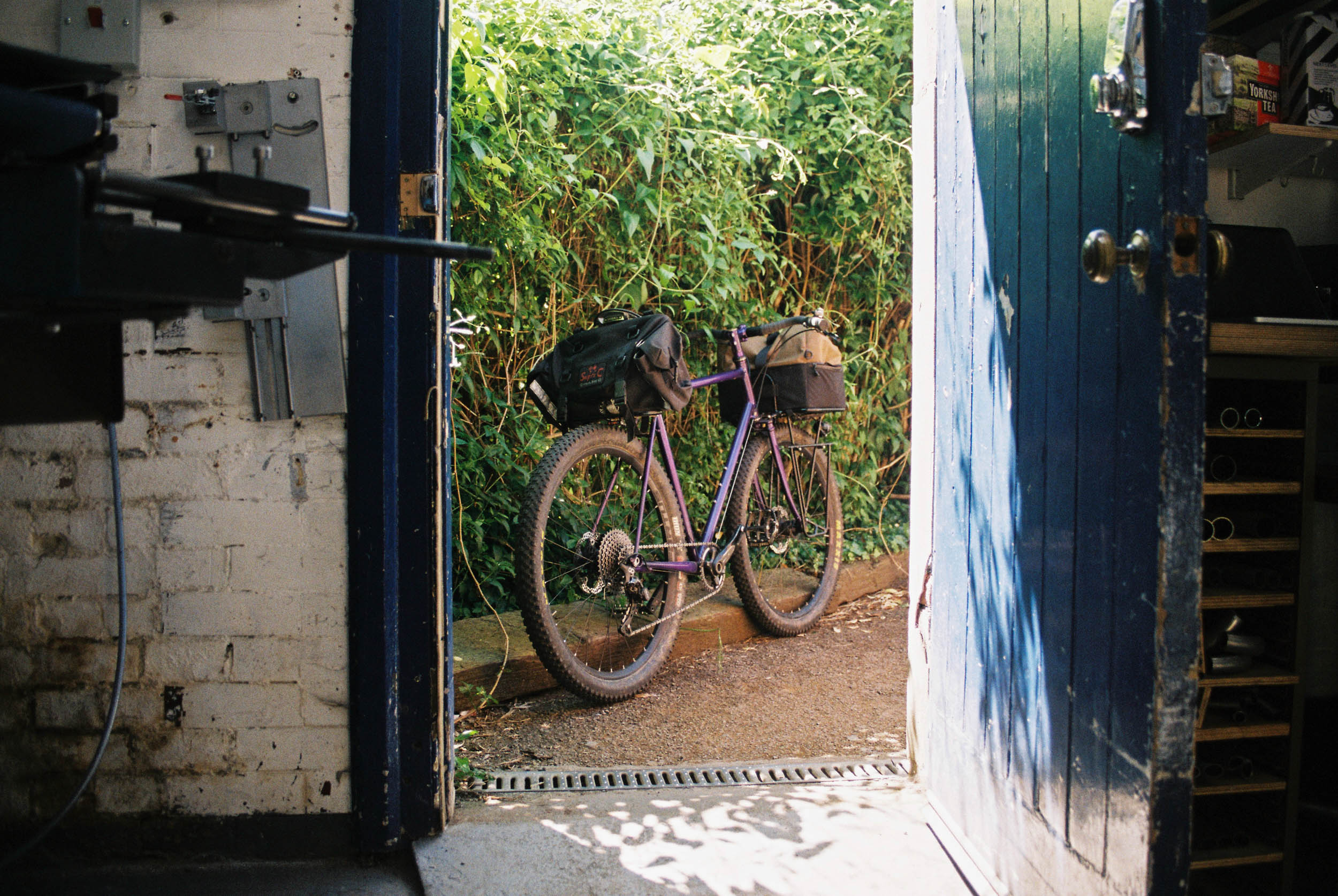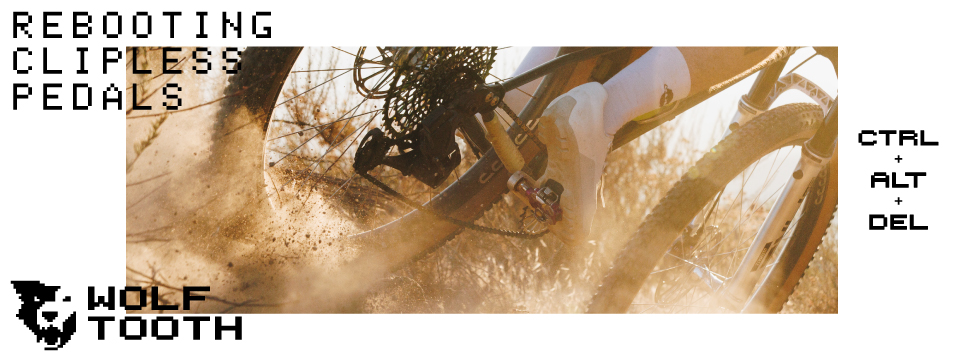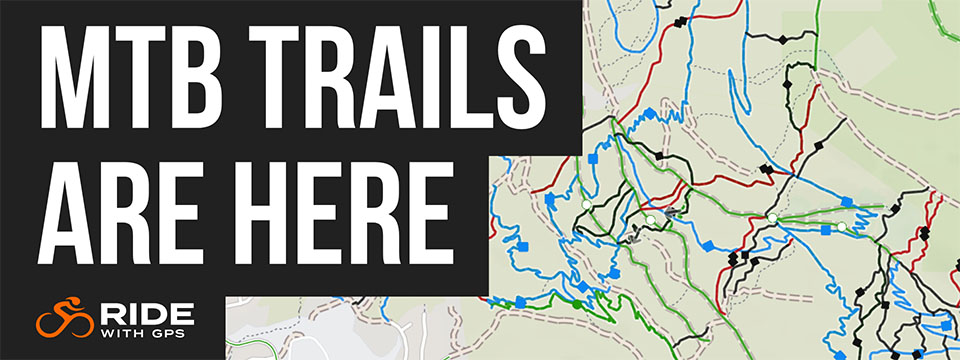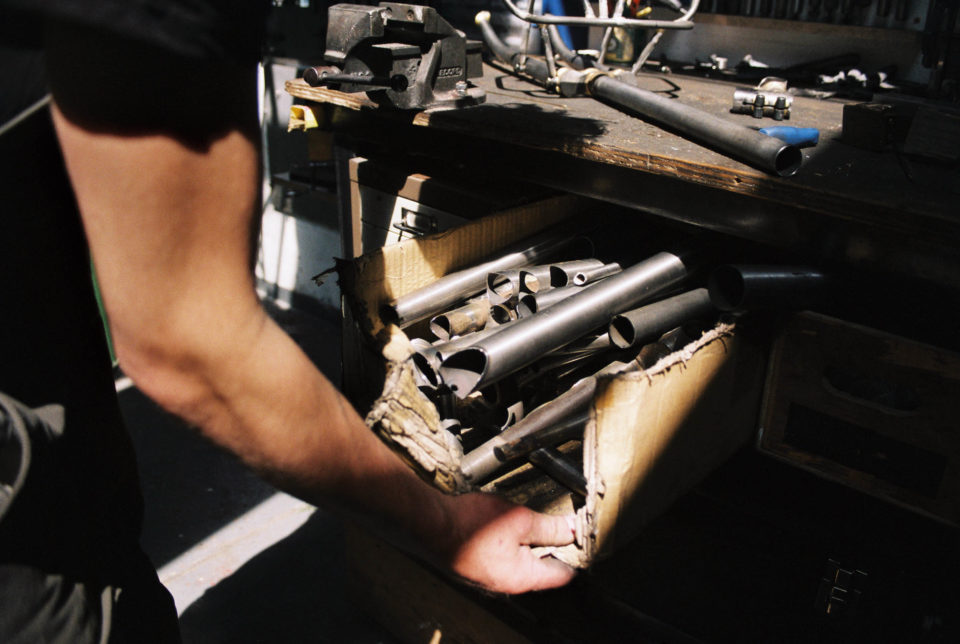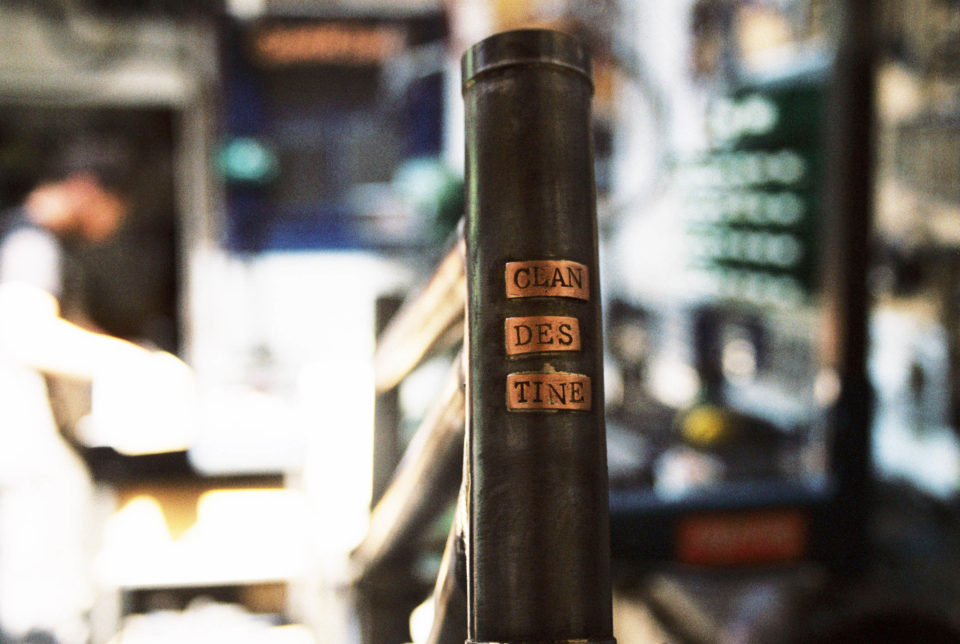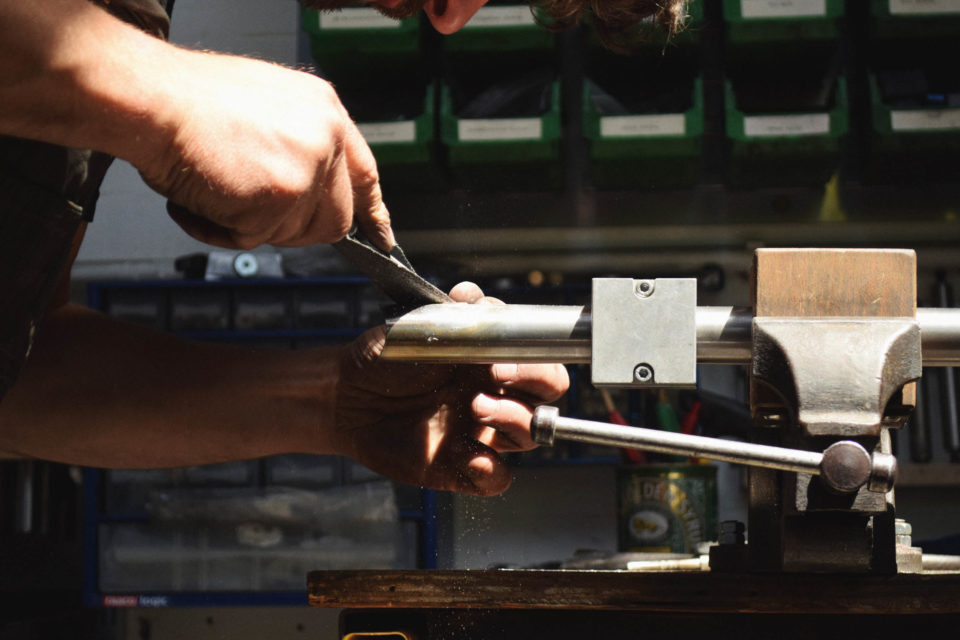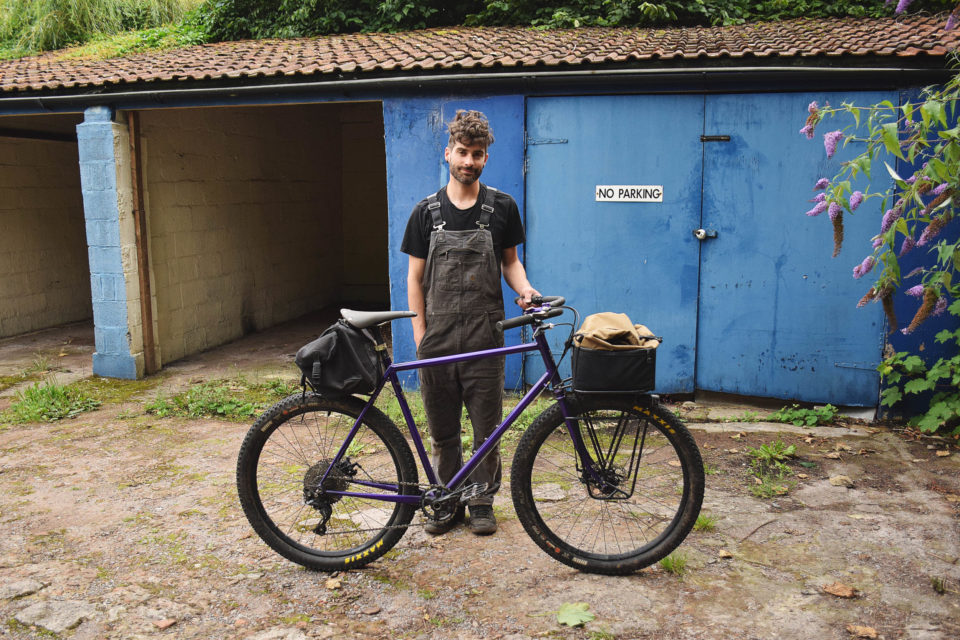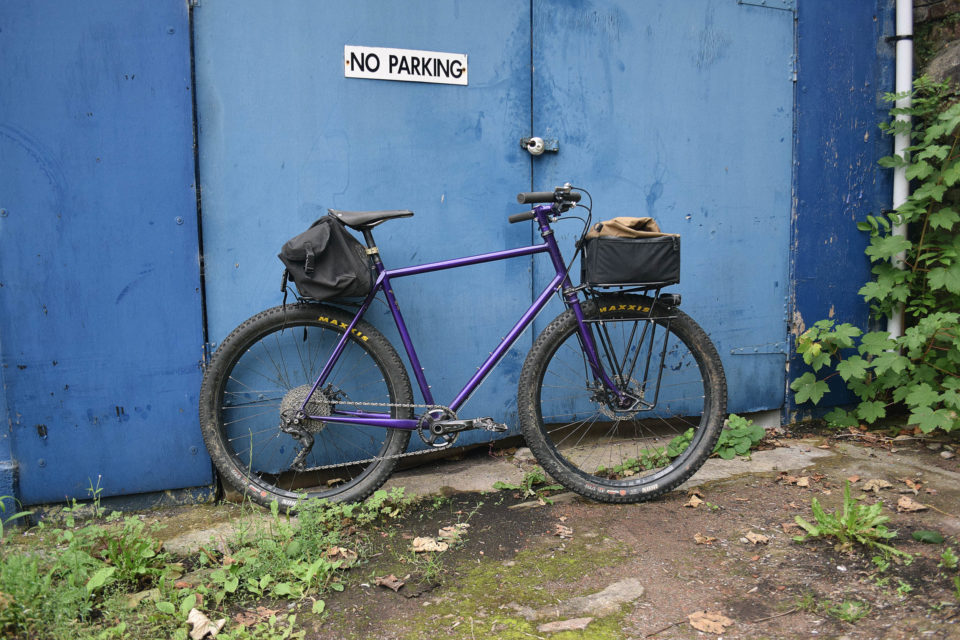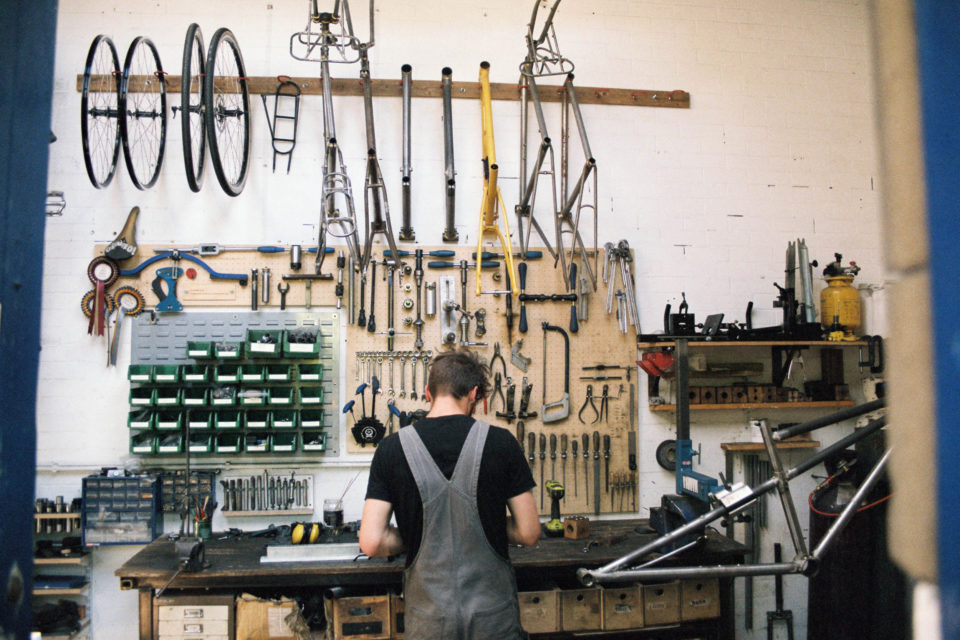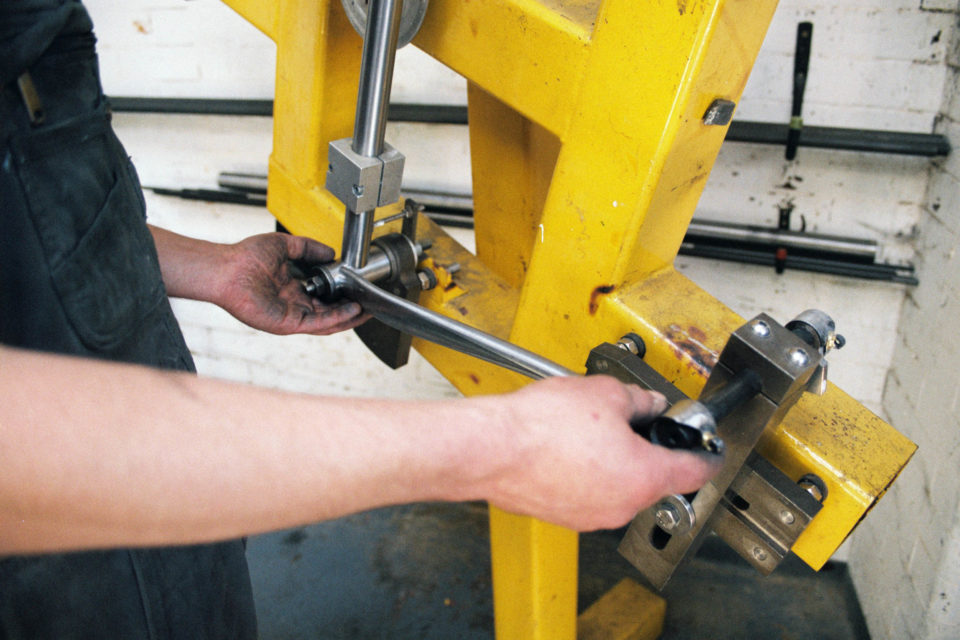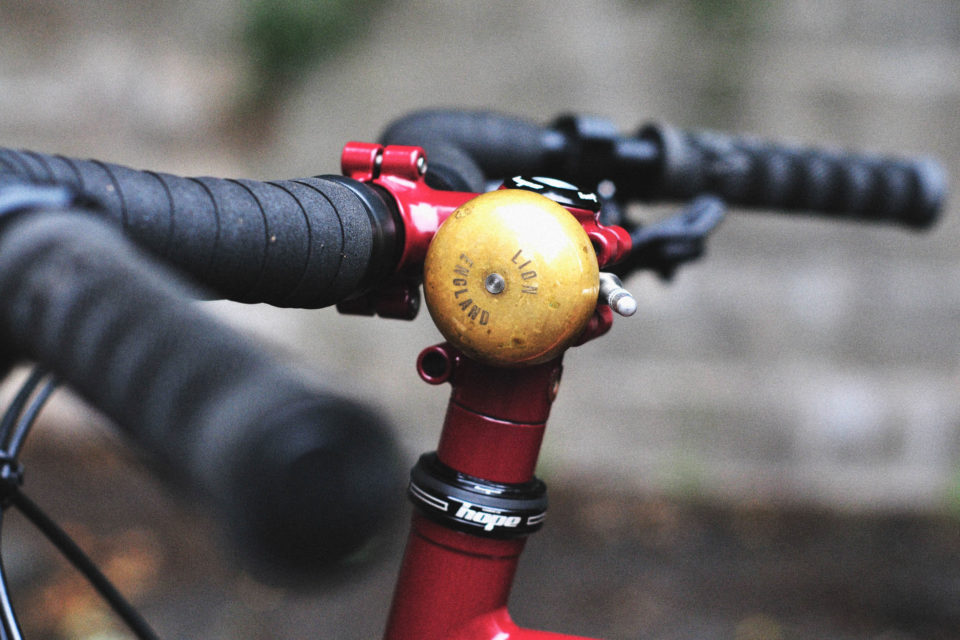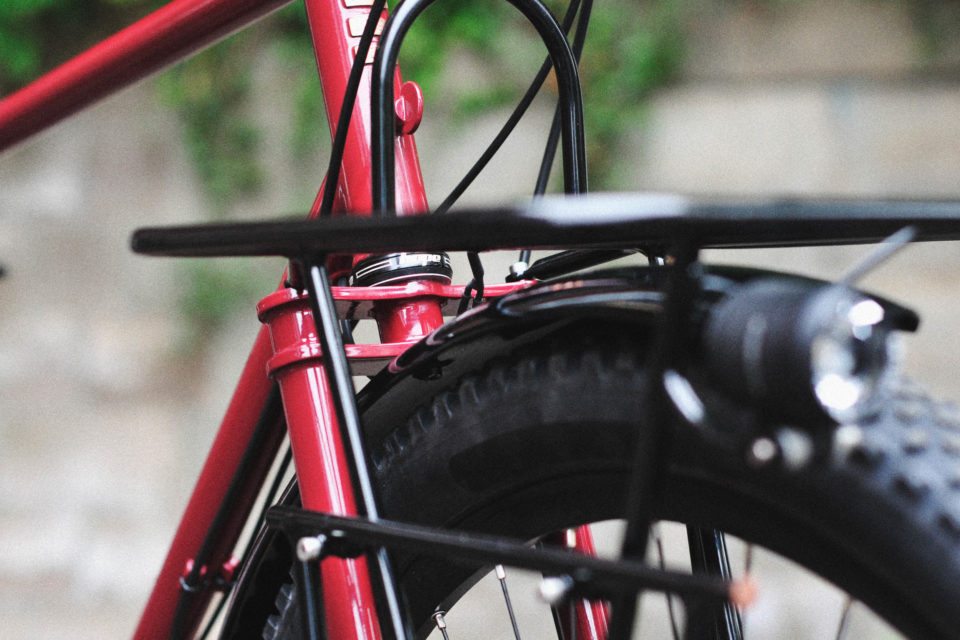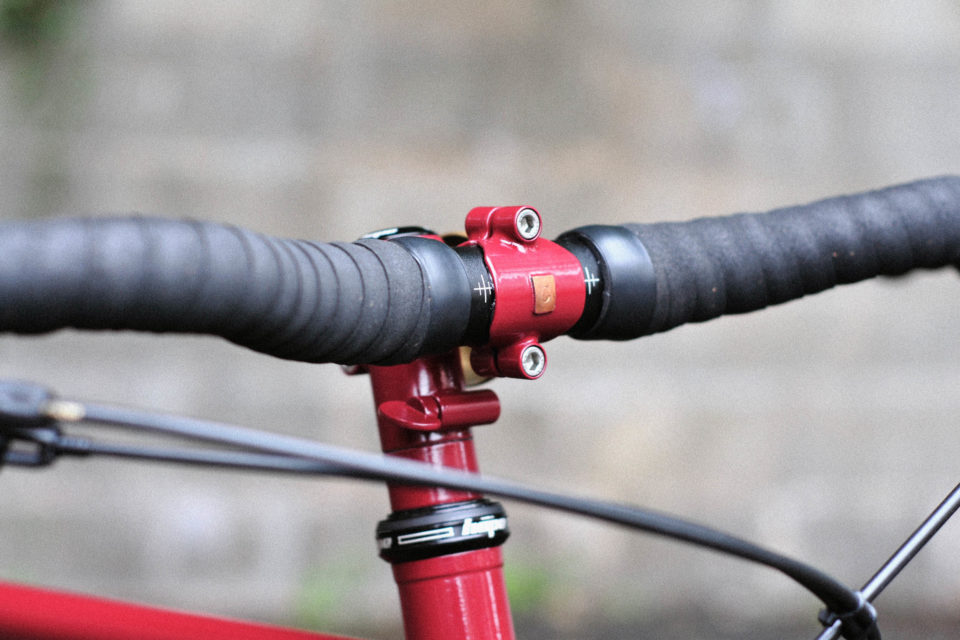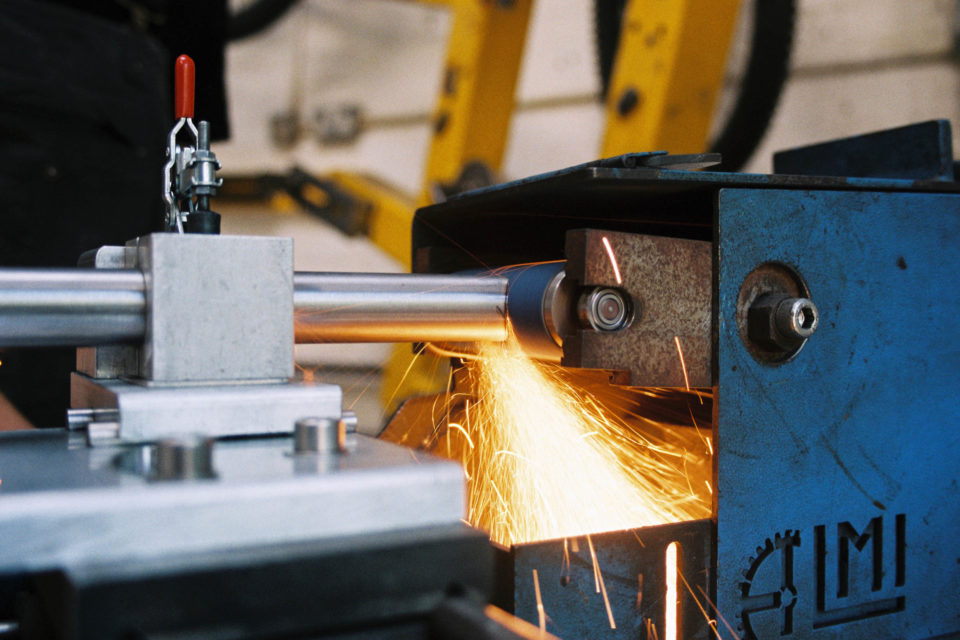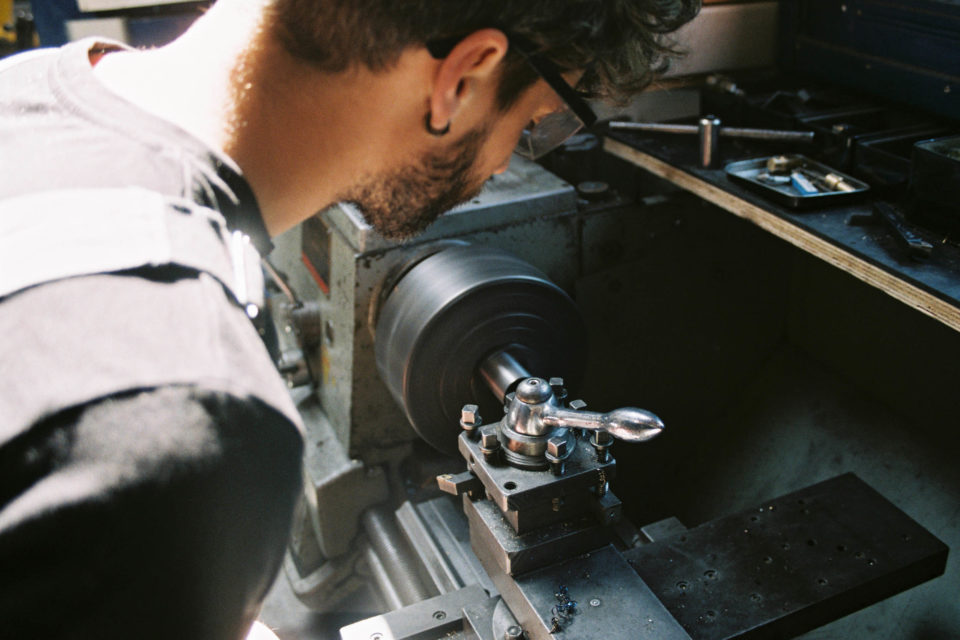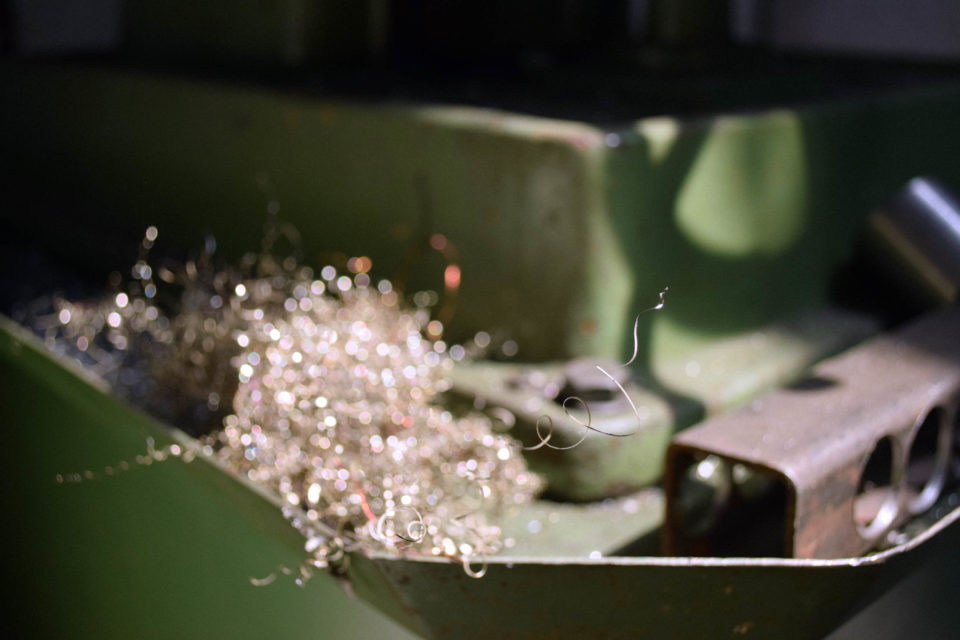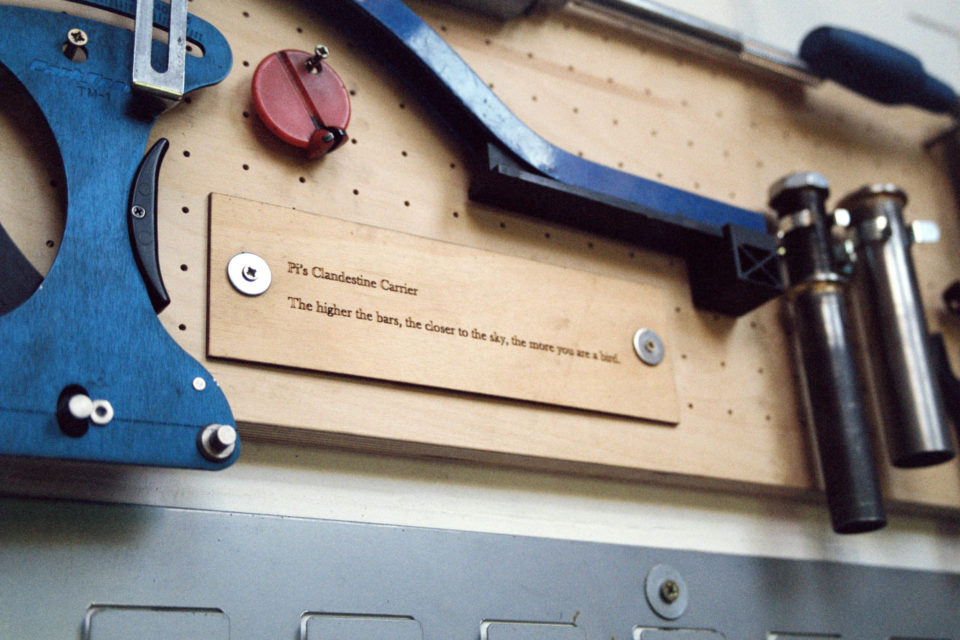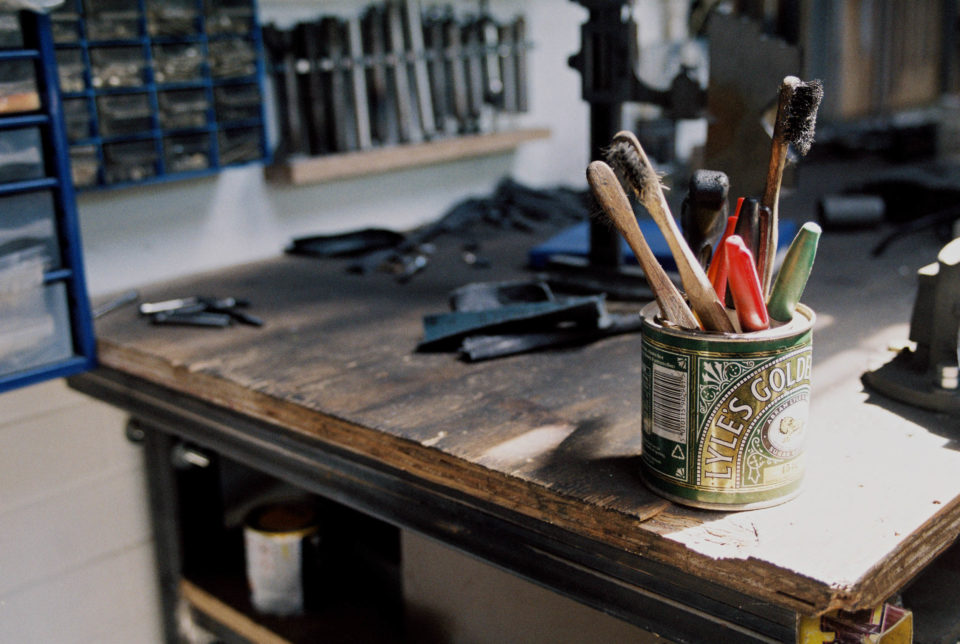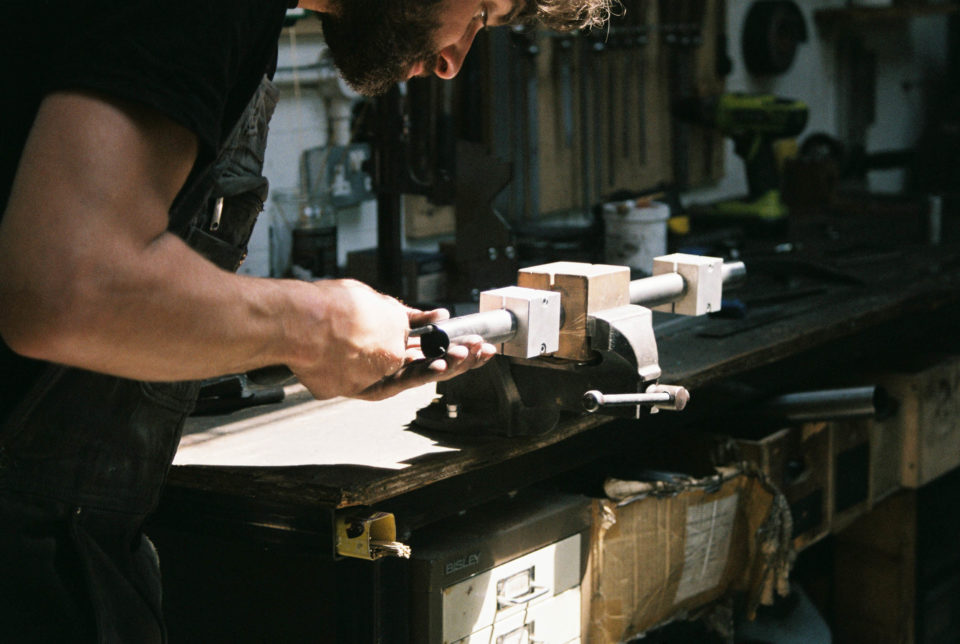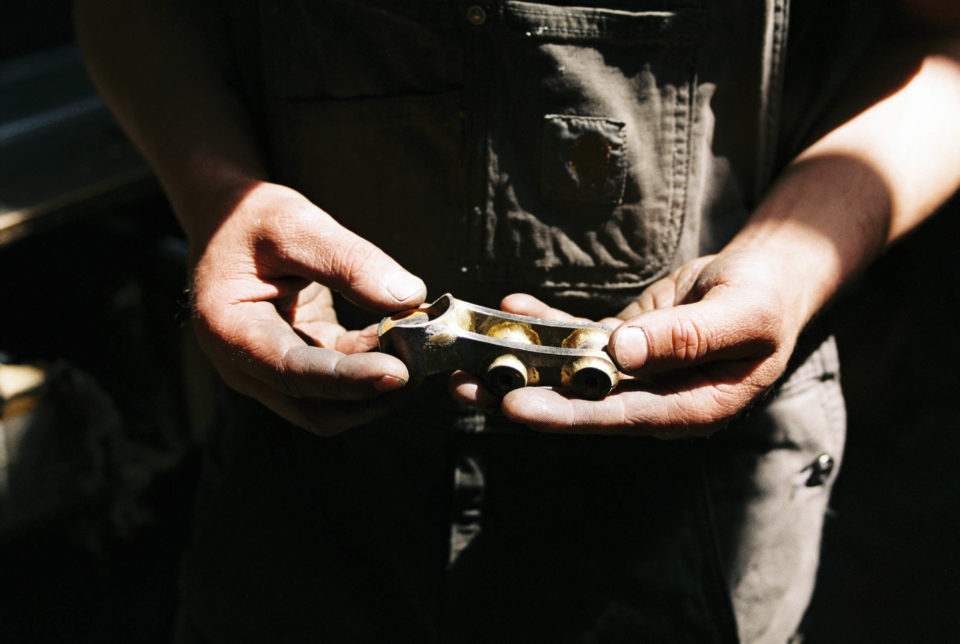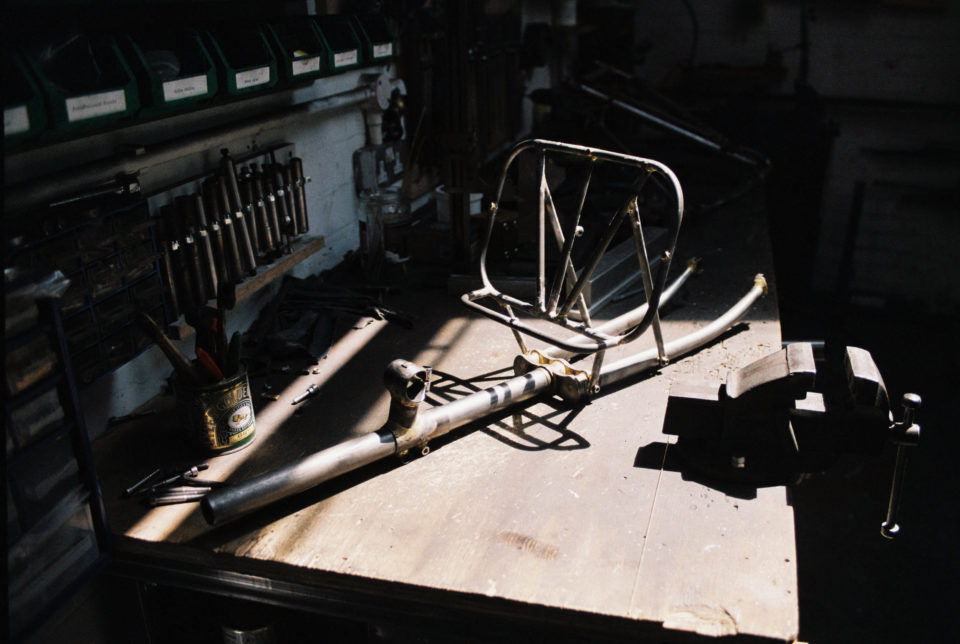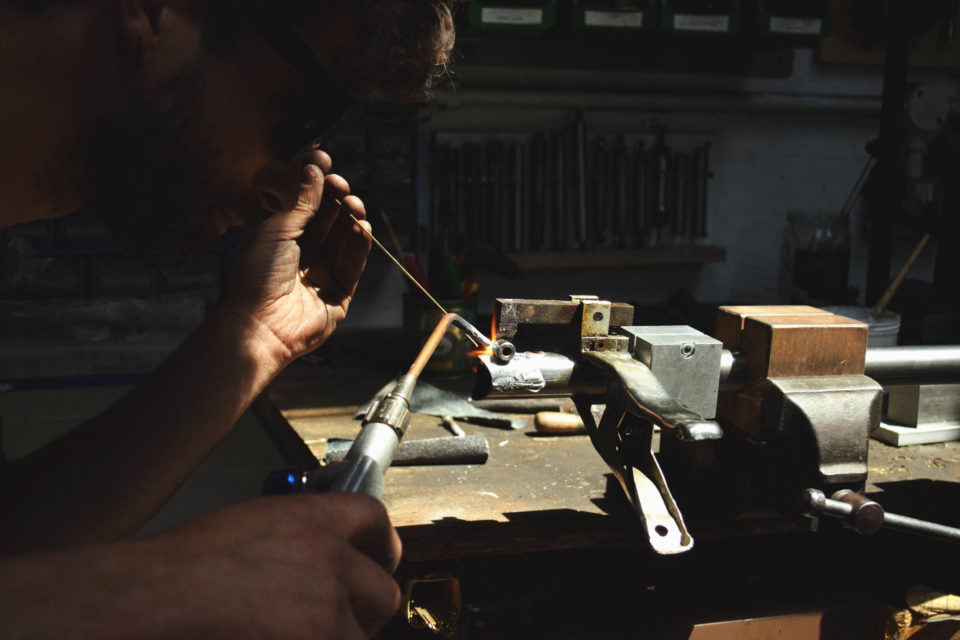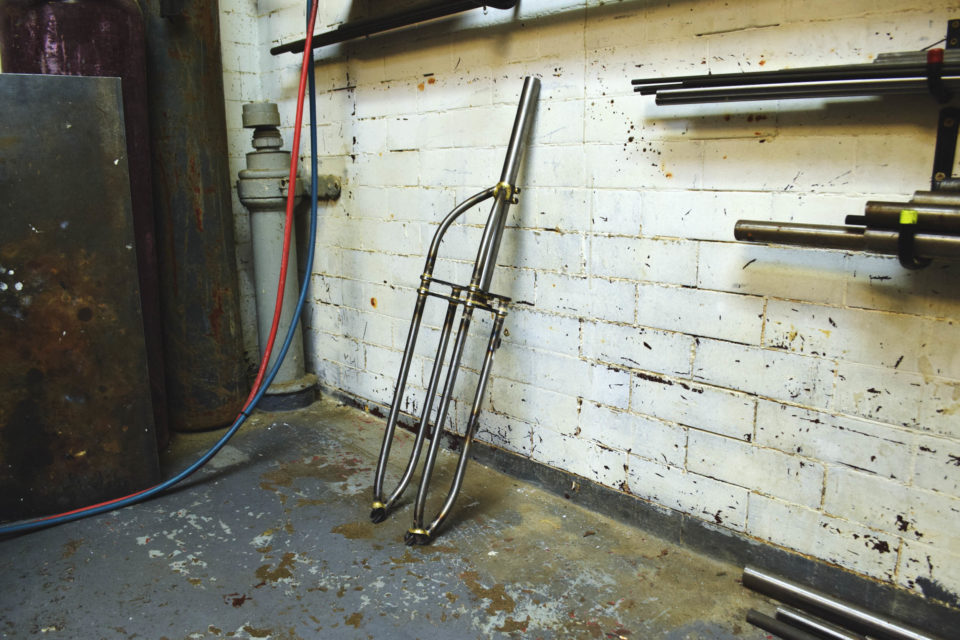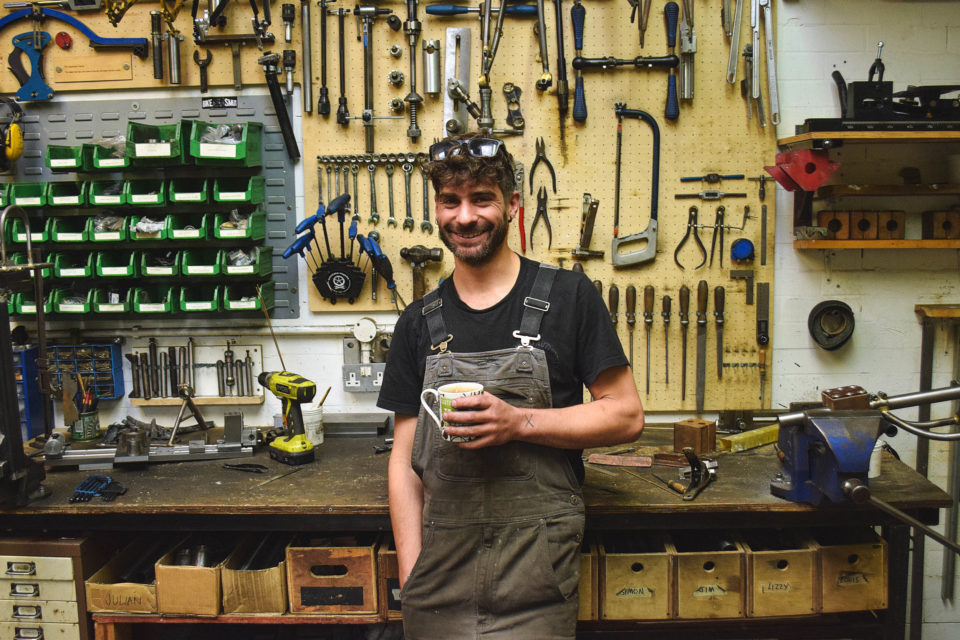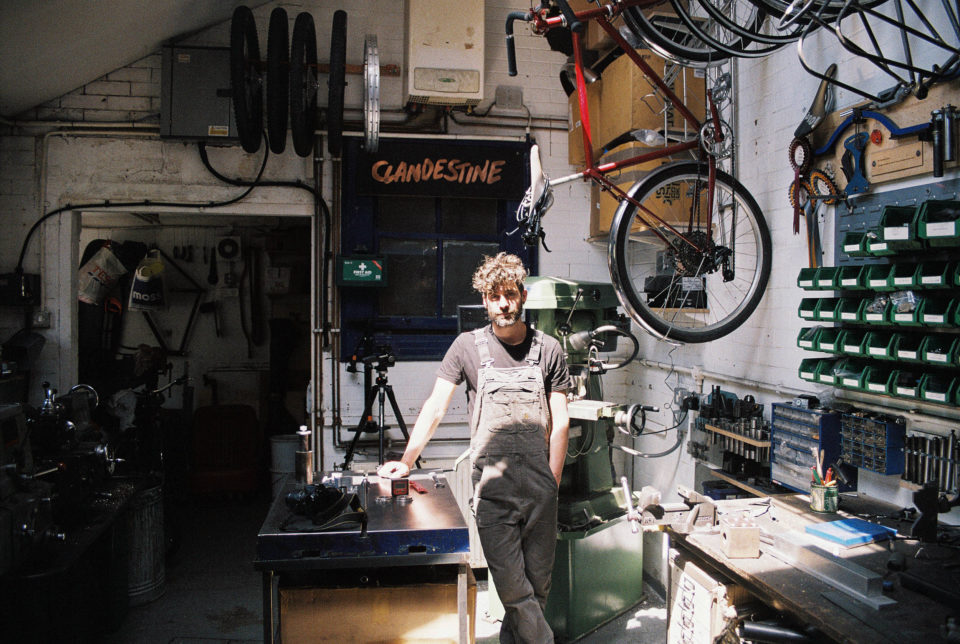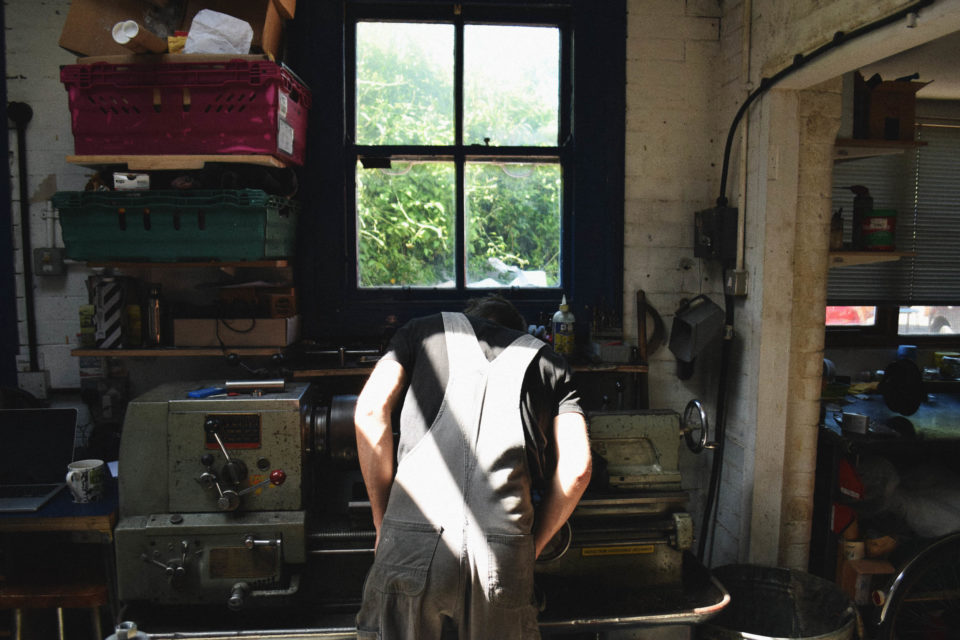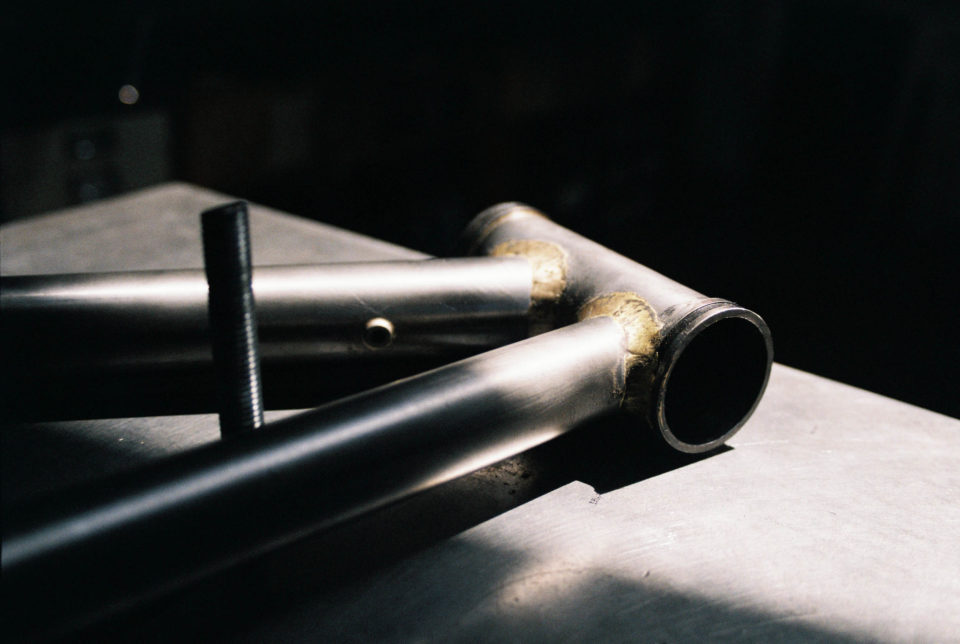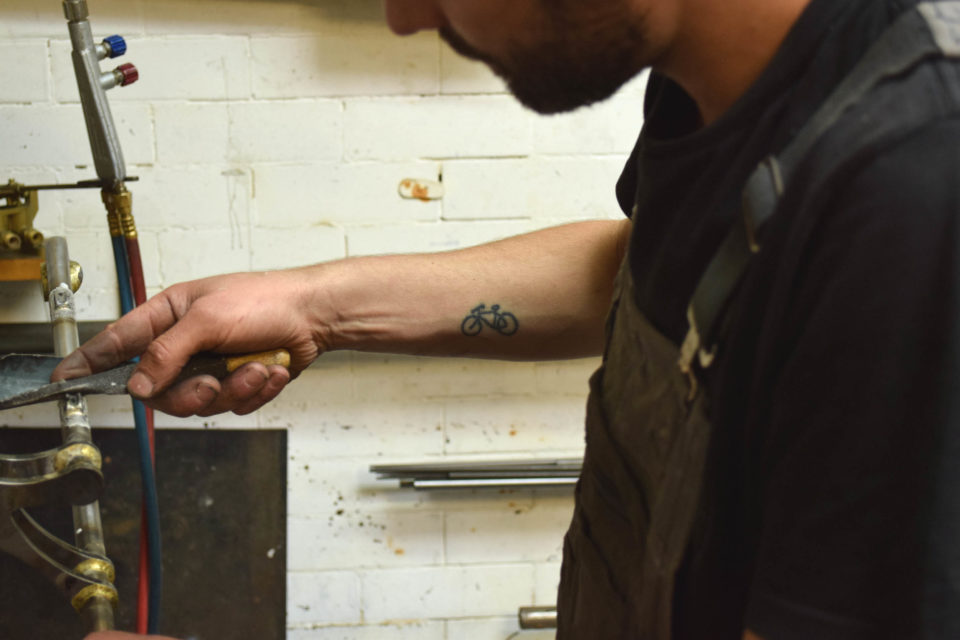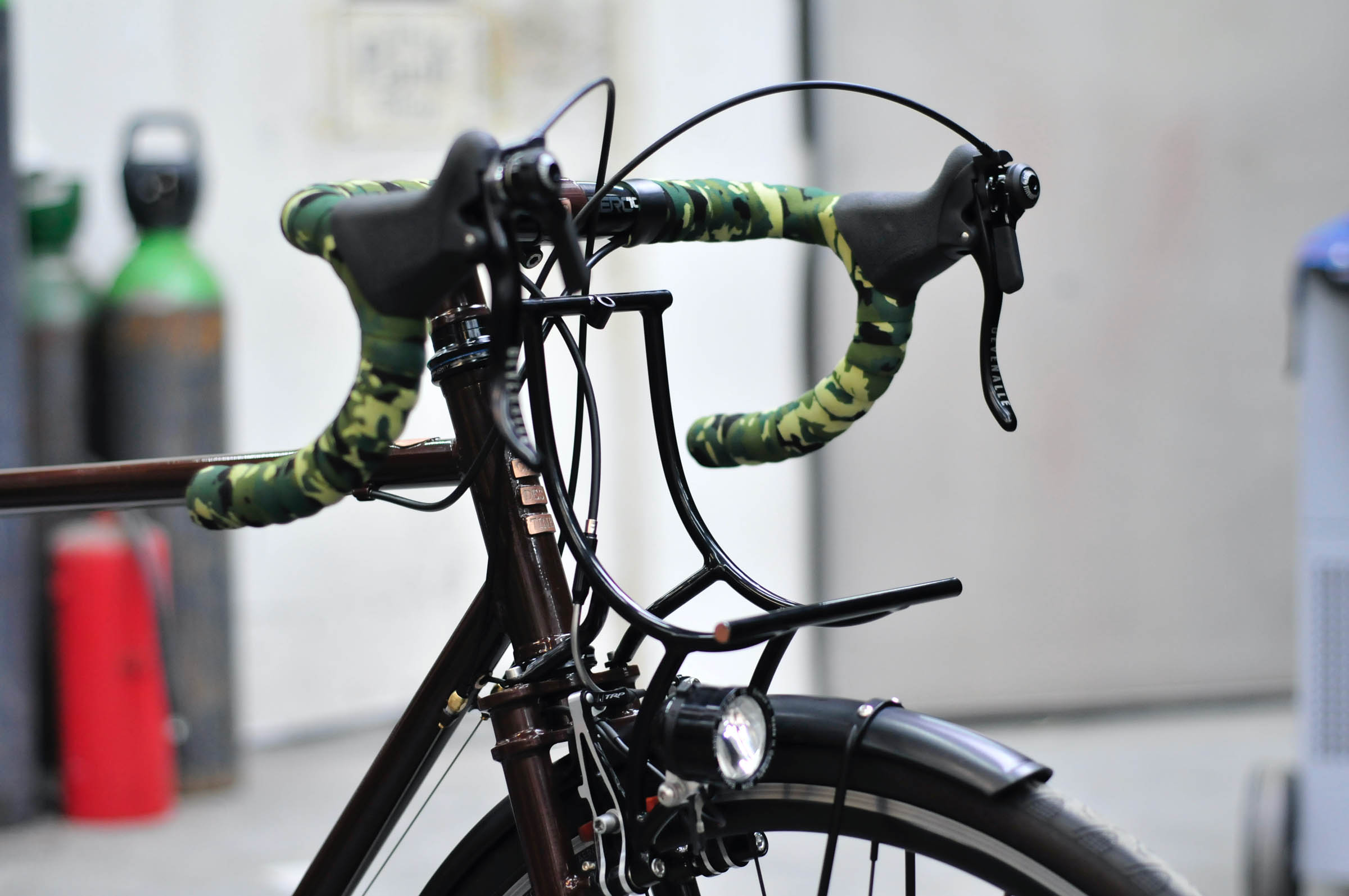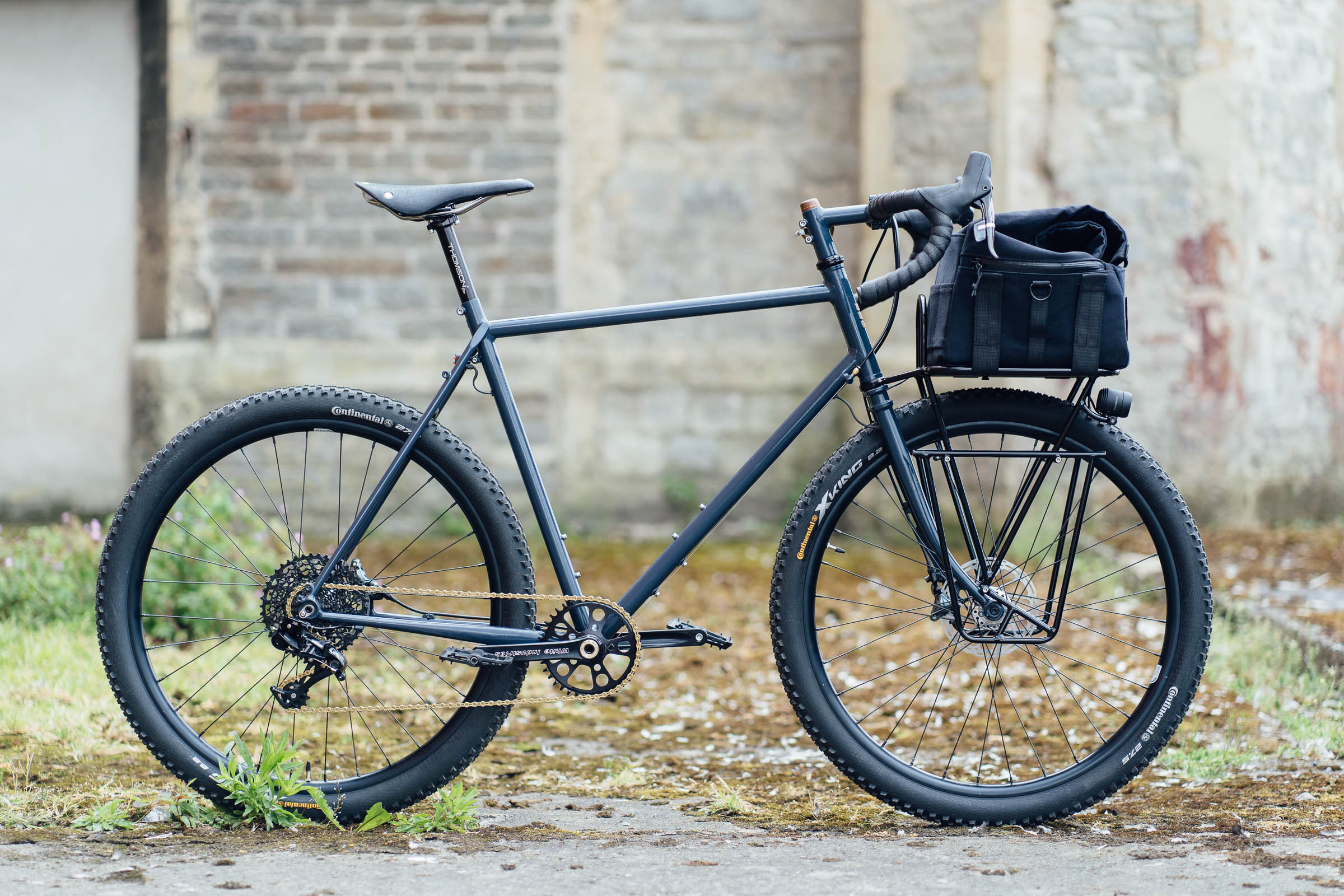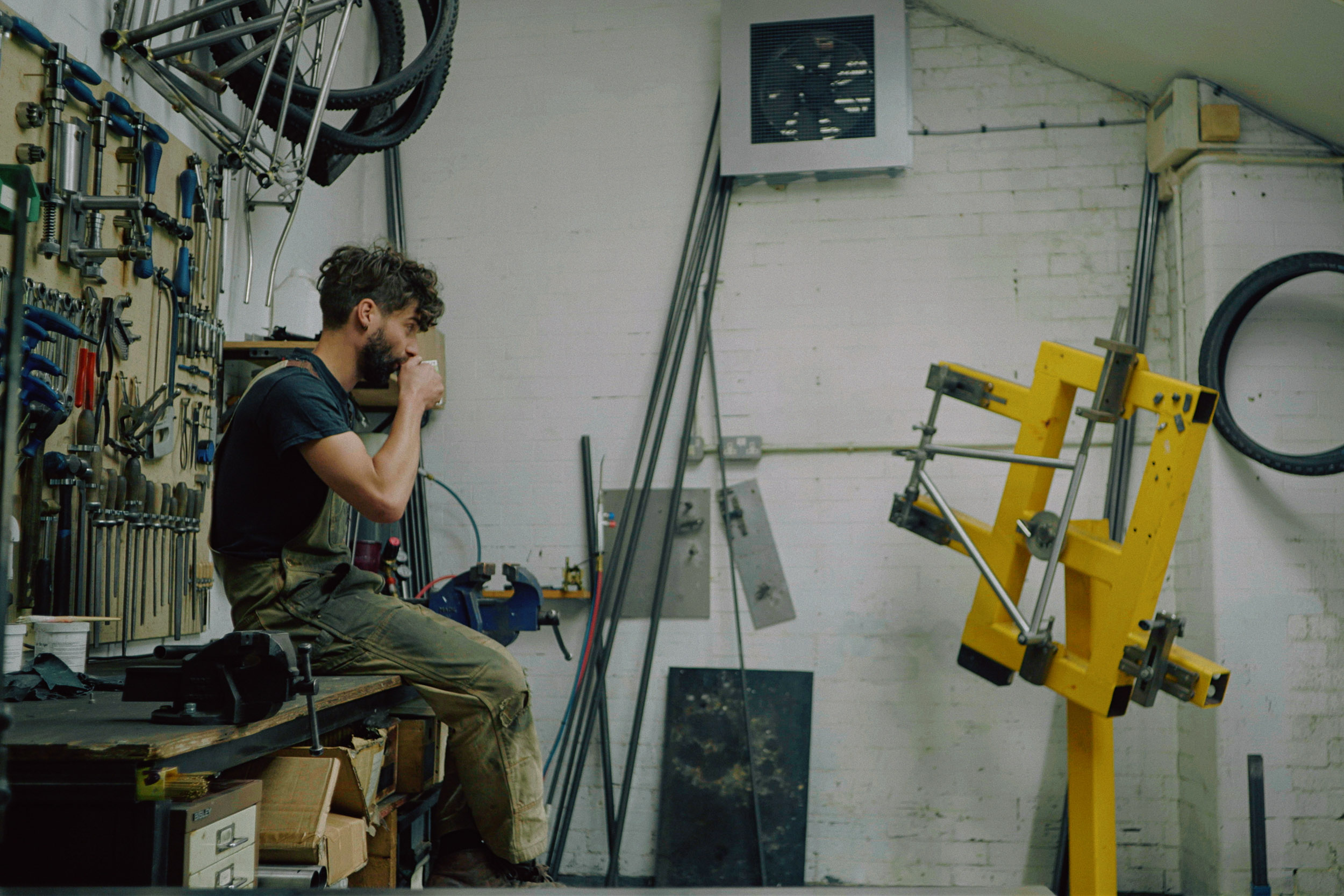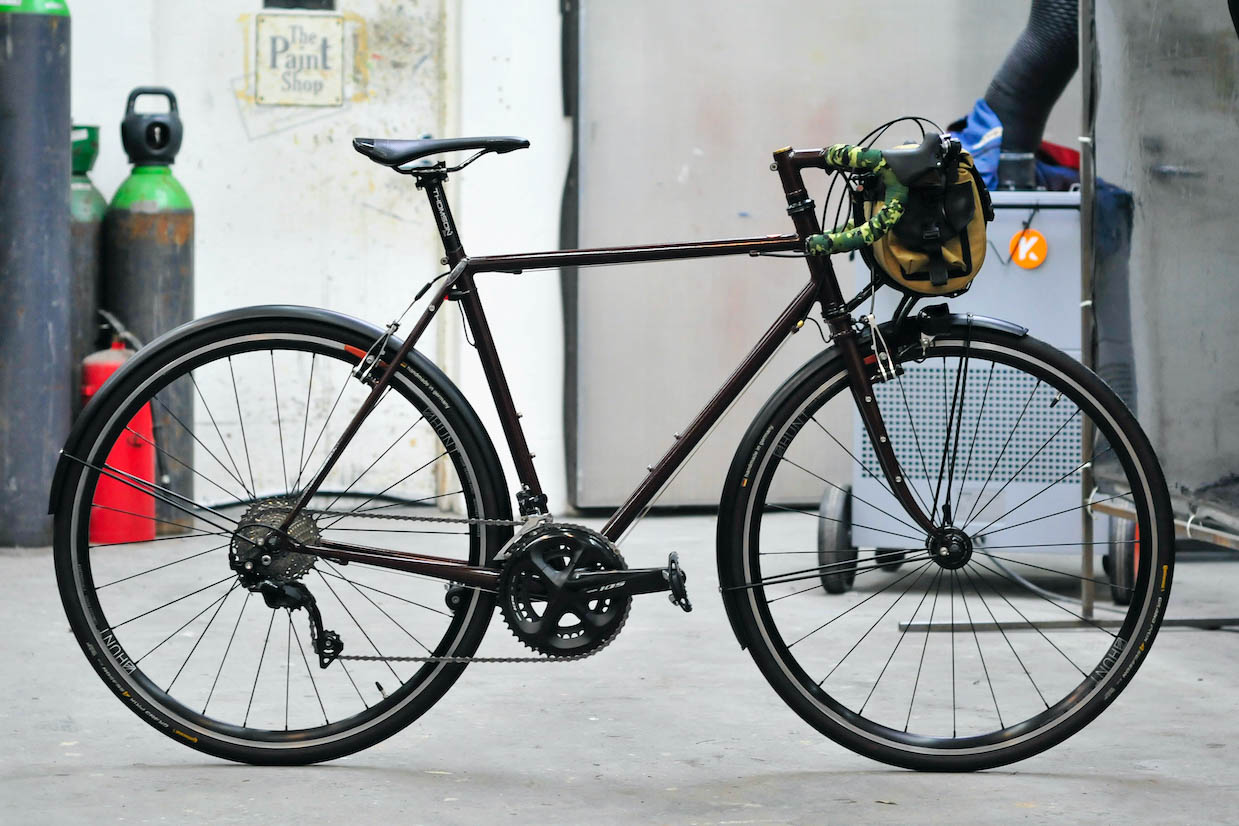A Visit to the Clandestine Workshop in Bristol, UK
We recently stopped into the Clandestine workshop in Bristol to meet framebuilder Pi Manson and learn more about the philosophy behind his beautiful handmade steel frames. Find our interview and a gallery of photos from his shop here…
PUBLISHED Aug 25, 2021
Interview and photos by Jack Boffy (@jackboffy)
Tucked away down a small street in the north of Bristol, Pi Manson is the one-man band behind Clandestine (@clandestine.cc). Not designed as performance machines for bagging KOMs or objects of vanity, Pi’s bikes are practical, beautiful tools intended to be used, appreciated, and enjoyed. Just as at home commuting through the city with groceries on the front rack as rolling down a gravel track in a far-off country, their versatility, combined with his characteristic functional aesthetic, give his bikes their signature utilitarian style.
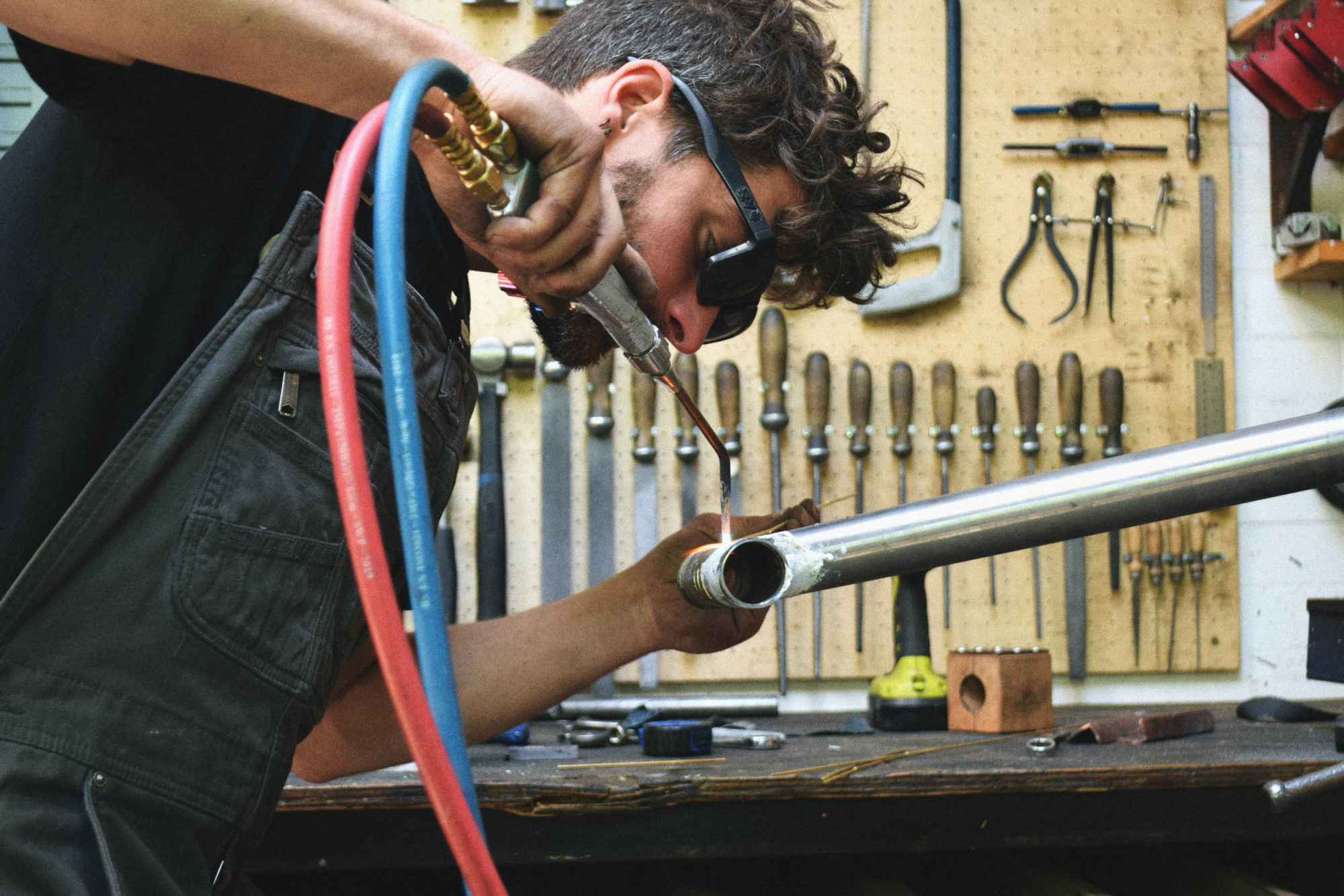
In between the numerous COVID lockdowns, I visited Pi at his workshop, primarily to drink endless cups of tea—he was quick to tell me that the kettle was central to the whole operation—but also to discuss all things bike related. Seeing him turn out such beautiful bicycles from start to finish in a modestly sized workshop was a real privilege, a perfect mix of heavy industrial processes combined with the intricate details of a skilled craftsman.
Read on to discover why Pi loves to build bikes, how he chooses to make them, and get a glimpse of the process that goes into producing his custom bikes by hand.
Tell us something about yourself and your journey into riding bikes.
It’s a funny thing, the old “how did you get into riding bikes” question. I can’t really remember not riding bikes, they were just this integral part of my life from childhood. I grew up on the Welsh borders, miles from almost anything, and no other way to get about. So bikes were just liberation: as a kid, I had entire counties to roam around. I have friends who grew up in towns and cities and could only go out on their street. To look back, I was so lucky that I just had to be back in time for tea. From about 14, a mate of mine and I would ride our mountain bikes 15 miles to Bringewood (old school UK downhill place), ride all day, then pedal home. We did that every weekend for years. It was just bikes, all the time. I grew up, lived in cities, but never left behind that feeling that the bicycle is self-reliance and liberation for me.
Was there a spark that first made you want to build bikes for a living?
I’d quit my crappy bike mechanic job, gone on a bike tour across Spain, and I thought I could make this thing better. Like a lot of bike punk kids, I’d MIG welded a tall bike together and was absolutely blown away by the magic of gluing metal together. It’s alchemy: it’s still incredible to me, to work and join and manipulate this hard, miraculous material, and finish with something as empowering and utilitarian as a bicycle at the end of it! It’s just alchemy, how could anyone try it and not want to do this? I never really thought it’d be a craft I could pursue to earn money. That was a little revelation to me when it began to happen, slowly, years later.
Your bikes and racks are made to measure without too many adjustable parts. Is this a desire to hand over a totally finished product to the customer or is there a more practical reason?
I don’t really make adjustable racks because I see my bikes as more than the sum of their parts I suppose. The racks on my bikes are part of the whole thing, they’re designed in from the beginning, not add-ons as such. Although they’re not brazed right onto the frame, so you can take them off, I can never really imagine the bike without them. Adjustable racks are really great and pragmatic, but custom ones are just better. Building a rack for a specific frame so it fits perfectly with no adjustment means the rack is both stronger and lighter without all that extra material and bolts.
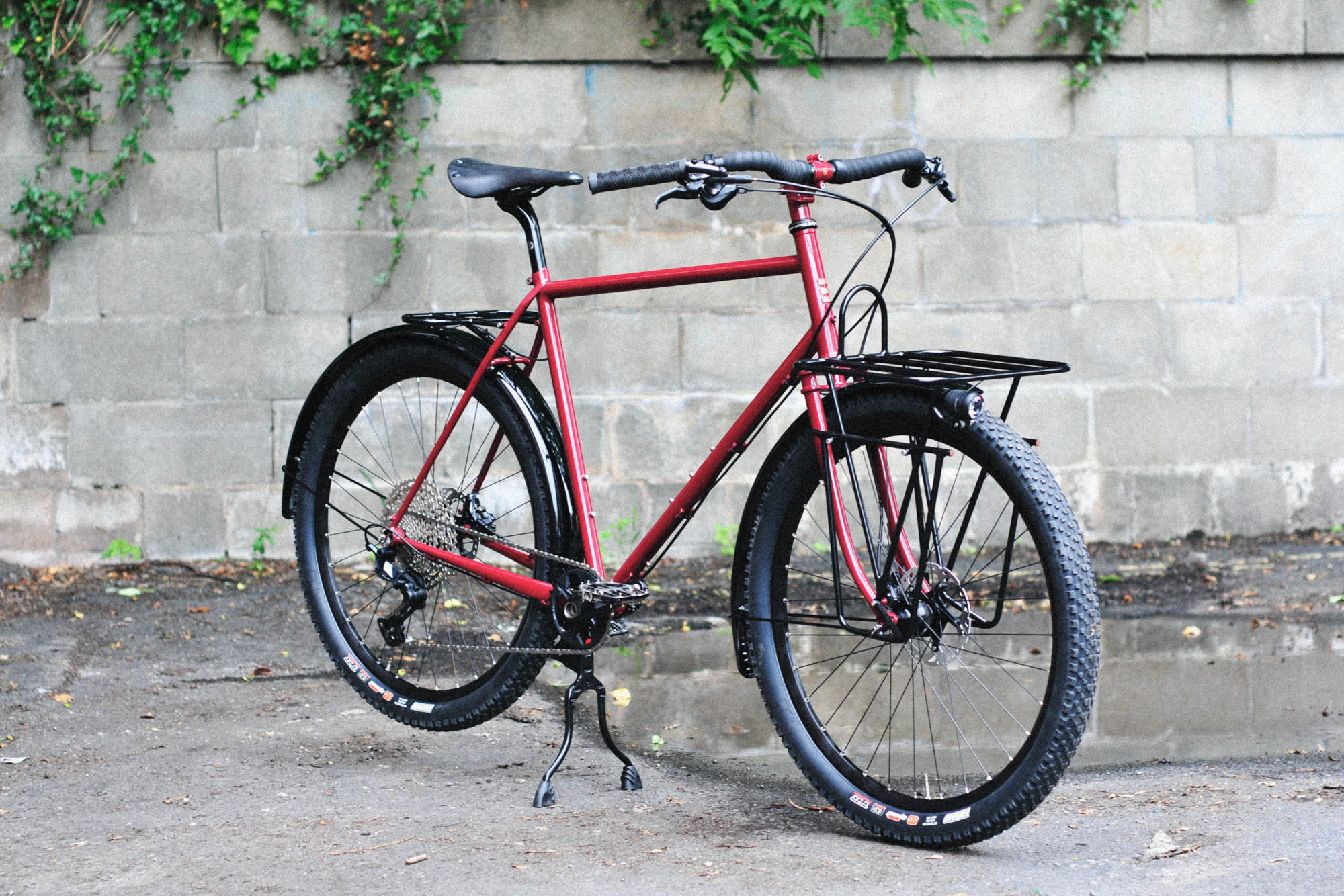
You inherited your frame jig from a fellow frame builder who was retiring. How did this come about?
My frame jig was made by Robin Mather. He’s a bit of an enigma, a Bristol frame builder of I suppose the generation before me. I’d been beavering away in my workshop for a year or so, fairly obsessively. Just experimenting, building racks and other simple things. If he ever reads anything when I go on about it he’d be embarrassed I’m sure, but giving me his jig to use, “sort of passing on the torch”, made all this possible. He said that when he was starting out it seemed impossible to make, a huge barrier. That was how I felt. And you grow and learn, and I make jigs nowadays, it’s not impossible anymore. But it was a gift that set me off, and I’m thankful for it every day, aware that we’re all just in a long line, trying to live up to that.
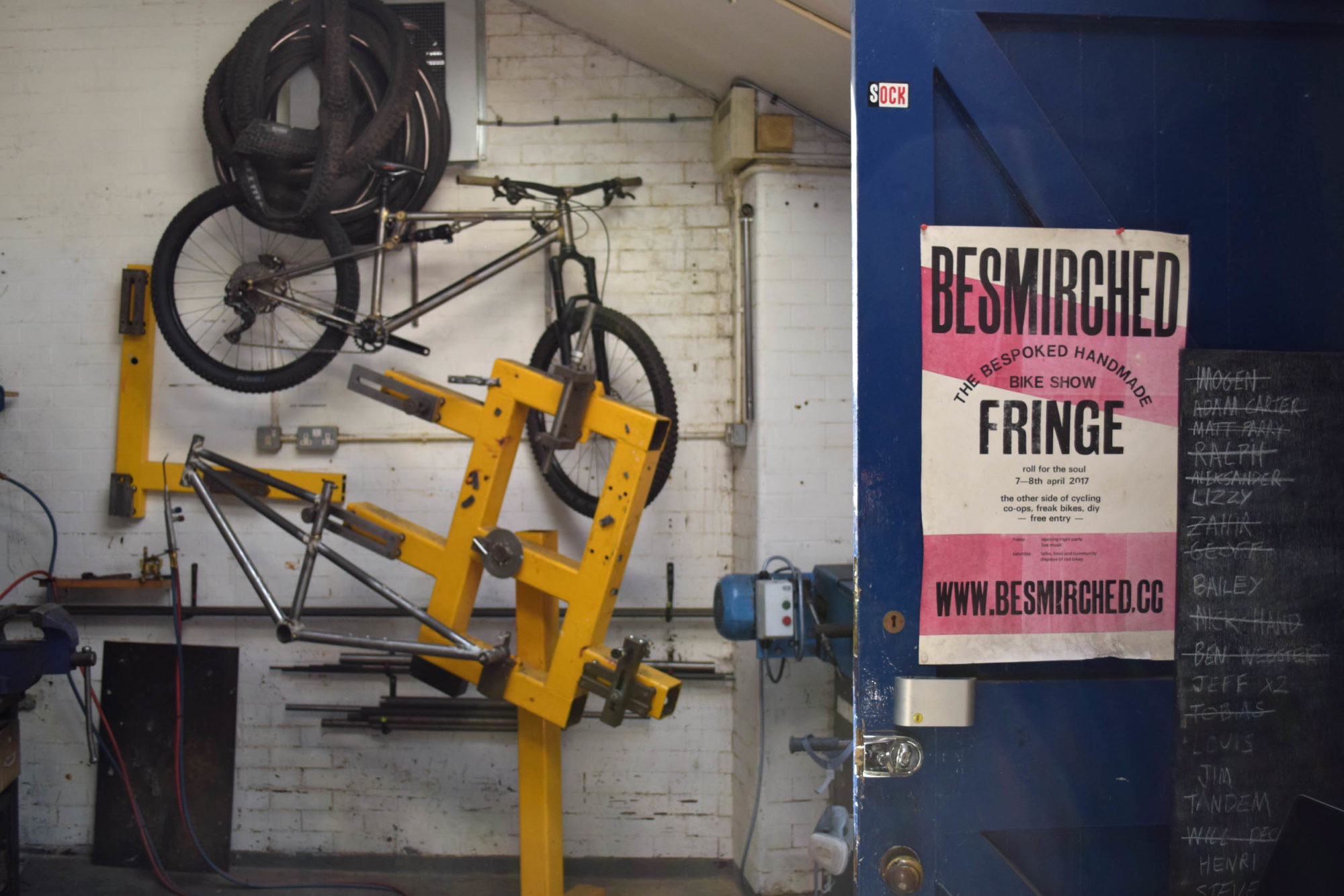
You mentioned that you prefer to finish one project at a time rather than having a few at different stages of readiness. Why is this?
The process is everything for me. I batch make some subassemblies to be efficient, but working in a really linear way from the initial discussion with my customer, the designing, to cutting the tubes and all that, is far more rewarding for me. I like to feel really absorbed in each bike, keeping all the customer’s requirements in my head as I work through each aspect of the build. The hardest thing for my business during the pandemic has been sourcing parts and materials to allow me to work in that linear start to finish way.
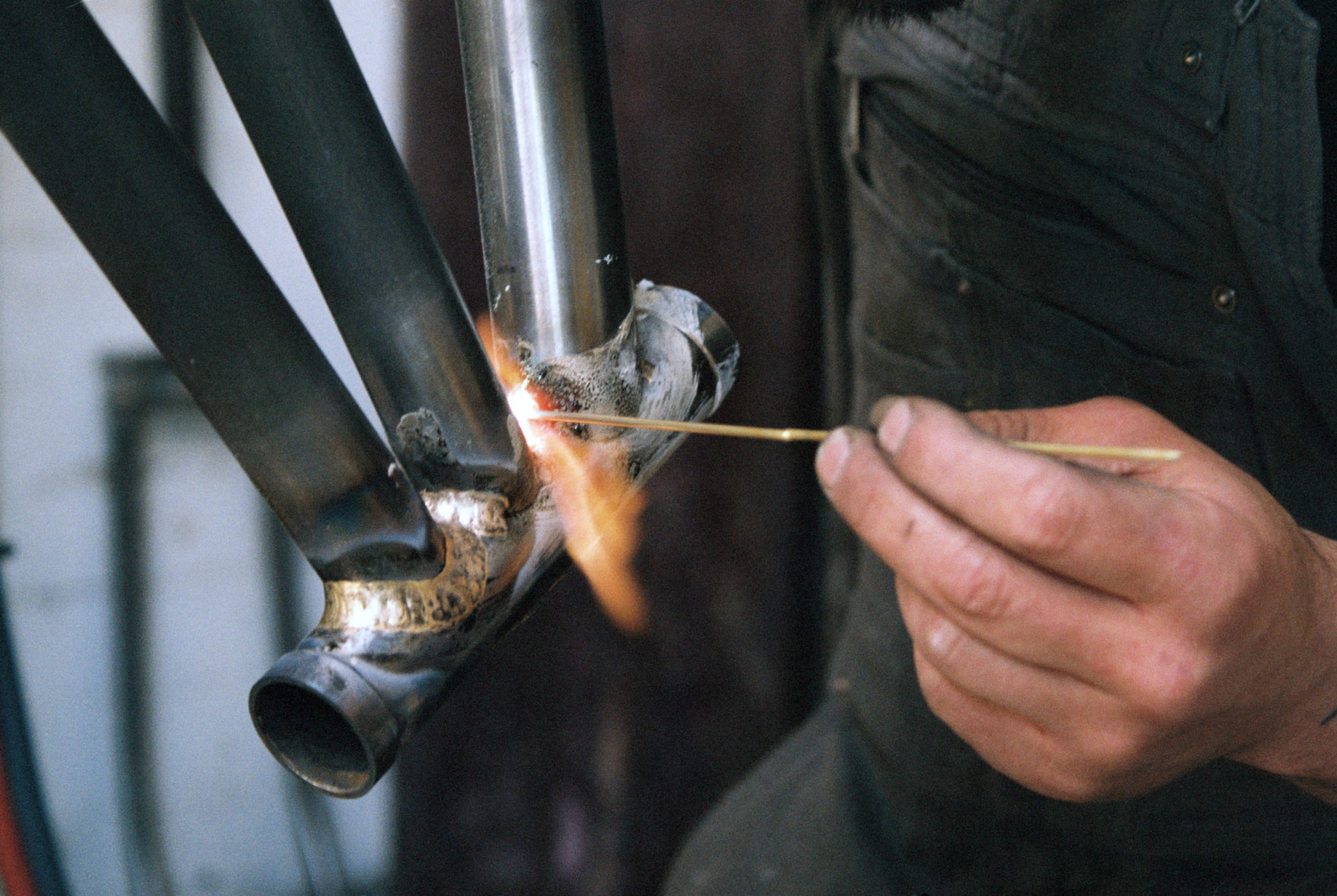
Bristol has a strong cycling culture. Does living here influence Clandestine in any way?
I’m not totally sure I’d be building bikes if I wasn’t in Bristol. The amazing thing about this city is the interconnectedness: inevitably knowing someone leads to someone else, to something else. It’s very open and easy to meet interesting people, even if you’re pretty introverted like me. Within a few weeks of moving to the city on a whim, I found myself tumbling into the bike scene here.
Later, I met Ryan from RyanBuildsWheels at our bike cafe, the much-missed Roll for the Soul. We got a workshop together, and I began to learn the how of bike building. I guess being a country kid living in a city has angled my approach to cycling in many ways. I’ve always used bikes as escape vehicles, and bikes like my Carrier model slot right into day-to-day city life, before dashing out into the woods or hills before sunset or at the weekends. Bristol is sized just right for making good your escape of an evening.
It’s been a challenging year or so for everyone, but it does seem to have gotten a lot more people riding bikes. Has the upturn in cycling been good for custom bike builders?
I don’t know if I’ve seen more orders come in because of the pandemic. It’s hard for me to judge because I’ve not been doing this for 20 years, I haven’t seen the ebbs and flows so much. I’ve been so lucky to have plenty of customers and to have been able to bunker down in my workshop building, not having to shut down like many other businesses. So I’m very fortunate. If anything has helped custom builders in the UK, my sense is that it’s the growing desire folk have to support more microlocal economies, people who live where they live, who spend money where they spend money. Bikes have always been good for that, as intimate slow-speed vehicles, so I hope the wider cycling industry can represent that essential nature of the bicycle more.
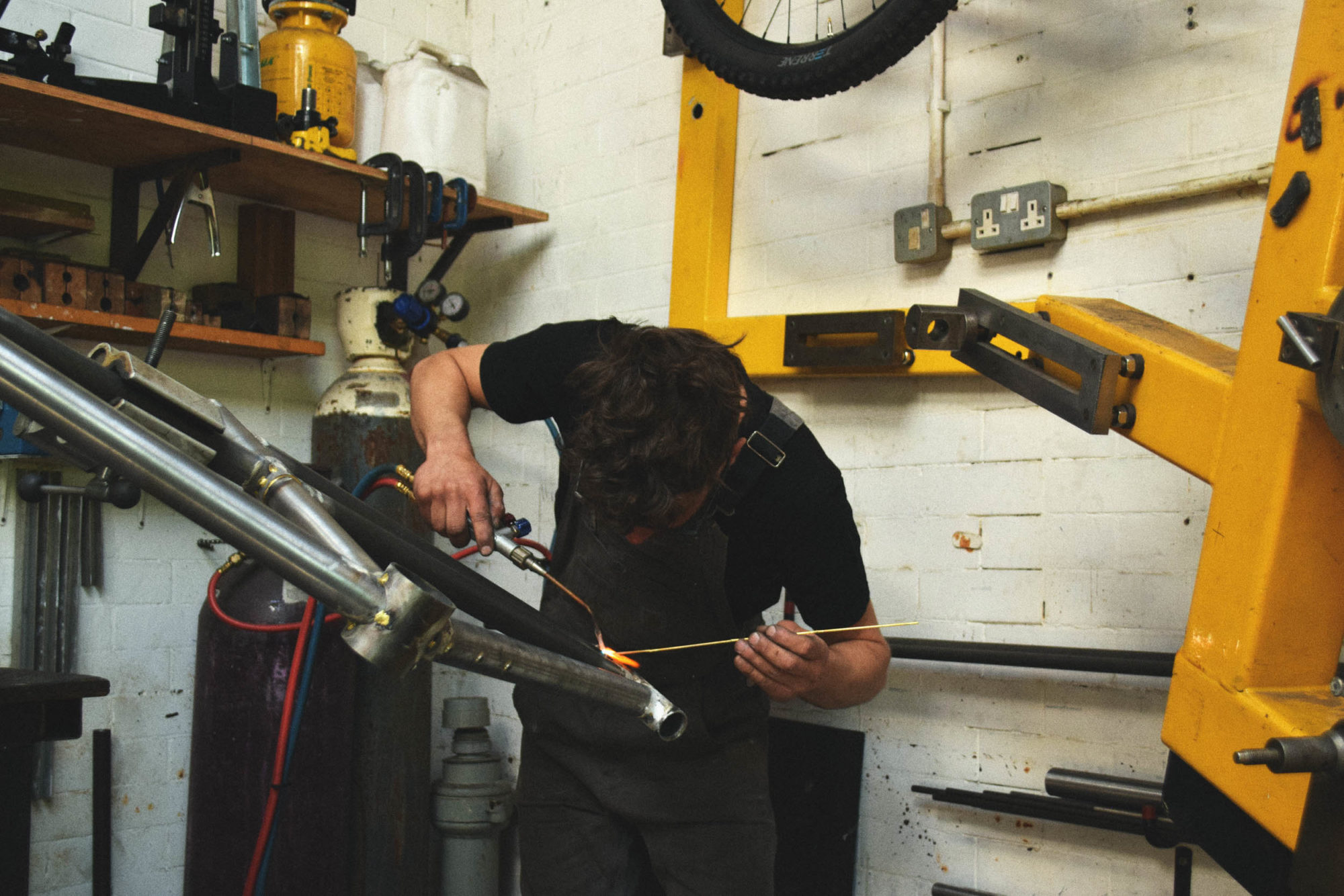
Where’s your dream place to take one of your bikes for a trip?
I’ve ridden round a lot of the highlands and islands of Scotland, but I still feel like there are so many nooks and crannies up there I’d like to poke my nose into. The other place that speaks to me is Patagonia. That’d be a real dream. That deep south bottom of the world feeling is so exciting to me. I like cold, raw places I guess.
Outside of building bikes, what’s your favourite way to spend a sunny weekend in Bristol?
Pretty much some kind of bike ride, or else pottering around our little garden. My partner and I grow veg in the back garden, though she’s the green-fingered one. But I’m a mean weeder, as long as the teapot keeps getting topped up. It’s been a real boon over the lockdowns, we’re super lucky to have that space. Anyone want any rhubarb? We’re drowning in it.
What’s next for Clandestine? Do you have any new projects or products you’re working on at the moment?
I’m plugging away at some special bikes for Bespoked that I’m really excited about. One of them, in particular, is a bit of a departure for me, but sits right into my ethos and approach to bikes: it feels like one of my bikes for sure. I’ve been riding it for a while now, and I’m so stoked on it. It’s a bikepacking bike and I can’t wait to share it. Hopefully, we’ll see lots of folks there, as it’s been really hard for the Bespoked organisers Phil and Tessa with all the cancellations and postponements. It’s a wonderful exhibition and such a powerful thing for the UK’s framebuilders. See you there?
Related Content
Dig into these related articles for more about Clandestine...
Please keep the conversation civil, constructive, and inclusive, or your comment will be removed.



